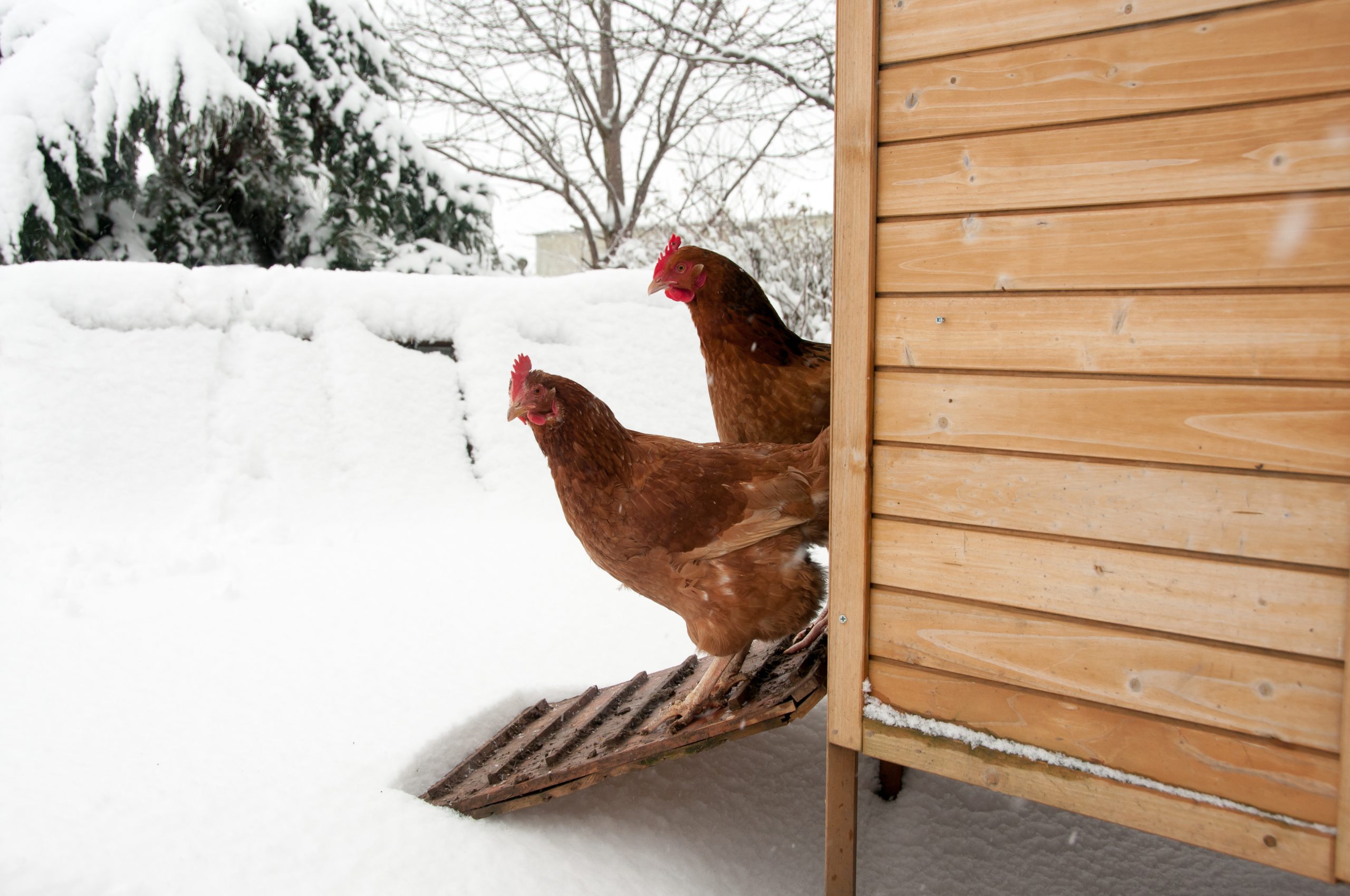
How to Prevent Frostbite in Chickens
2 December 2025 +Cold weather can be tough on backyard flocks, and frostbite is one of the most common winter challenges for chicken owners. Understanding what frostbite is, ...

Vitamins are vital to a chicken’s health, supporting growth, egg production, and immunity. Without adequate vitamins, chickens can suffer from malnutrition, reduced egg-laying, and increased vulnerability to diseases. While a balanced feed, like Shur-Gain Homestead Layer Feed, should provide the necessary daily nutrition, certain situations and stressors may require the need for supplements.
Environmental stressors can lead to vitamin deficiencies, especially when they cause chickens to eat less or disrupt nutrient absorption. Providing vitamin supplements during these times can help prevent these deficiencies. Consider supplementing your flock during the following environmental stressors:
Chickens need a lot of vitamins in small quantities for proper growth, immunity, and reproduction. Vitamins help in essentials roles like bone development, egg production, and disease prevention. Chicks need vitamins for growth, while adult chickens need a steady supply to stay healthy and productive.
Key Functions of Vitamins:
Chickens require two main types of vitamins: fat-soluble and water-soluble. During times of stress, chickens typically go to water first, so providing a vitamin supplement in their water can encourage them back on track and eating again to prevent further health issues or deficiencies.
For laying hens, small amounts of crushed oyster shells can support healthy egg production by providing a calcium supplement. Oyster shells should make up no more than 10% of their daily diet. You can offer them on a free-choice basis, allowing hens to eat as much or as little as they need. If you notice that they are consuming more than necessary, remove the bowl after 15-20 minutes to prevent overconsumption.
Fat Soluble Vitamins:
Fat-soluble vitamins are stored in the chicken’s body fat and used as needed. These vitamins can accumulate and lead to toxicity if consumed in excess, so it’s essential to monitor their intake.
Important fat-soluble vitamins for chickens include:
Vitamin A – Vital for vision, growth, bone development, and immune system support.
Vitamin D – Crucial for calcium absorption, which is needed for strong eggshells and bones. Chickens can naturally produce Vitamin D through sunlight exposure.
Vitamin E – An antioxidant that protects cells and supports immune and reproductive health.
Vitamin K – Essential for proper blood clotting.
Water-Soluble Vitamins:
Water-soluble vitamins aren’t stored in the body, so they must be replenished regularly through diet. These vitamins are less likely to cause toxicity since excess amounts are excreted, but deficiencies can occur if they aren’t consistently supplied.
Important water-soluble vitamins for chickens include:
Each vitamin is essential for maintaining a chicken’s health, with some vitamins working together while others serve specific roles. A deficiency in any vitamin can lead to symptoms related to its unique function in the chicken’s overall well-being.
At Feeds’n Needs, we recommend Chick’N Swell™ supplements, which are 100% natural, safe to use every day and veterinarian approved. This line of chicken supplements offers natural essential oil products specifically developed for the maintenance of overall chicken health.
Chick’N Swell™ Benefits:
Vitamins are essential for your chickens’ health, supporting everything from egg production to immune function. Ensure a balanced diet and use supplements when necessary to keep your flock happy, healthy and productive!